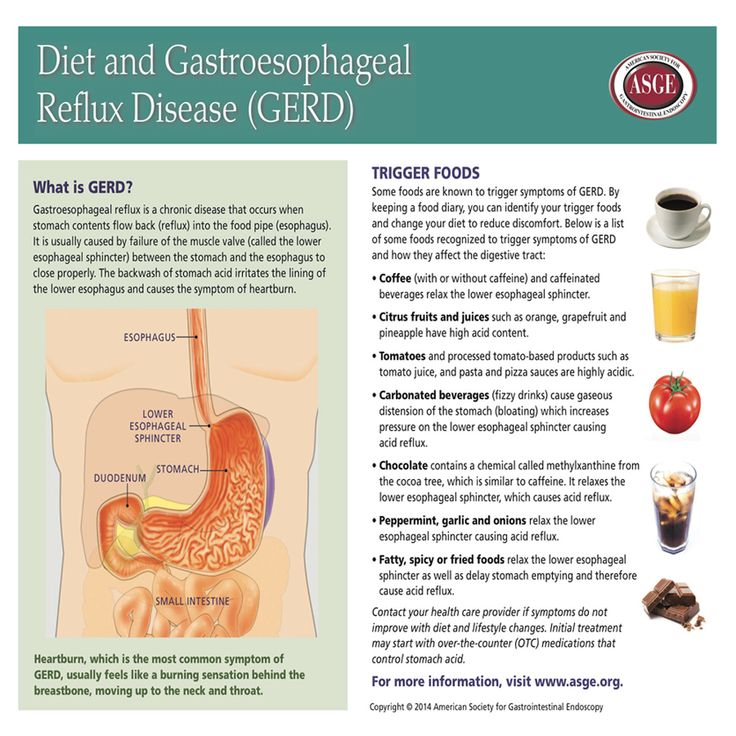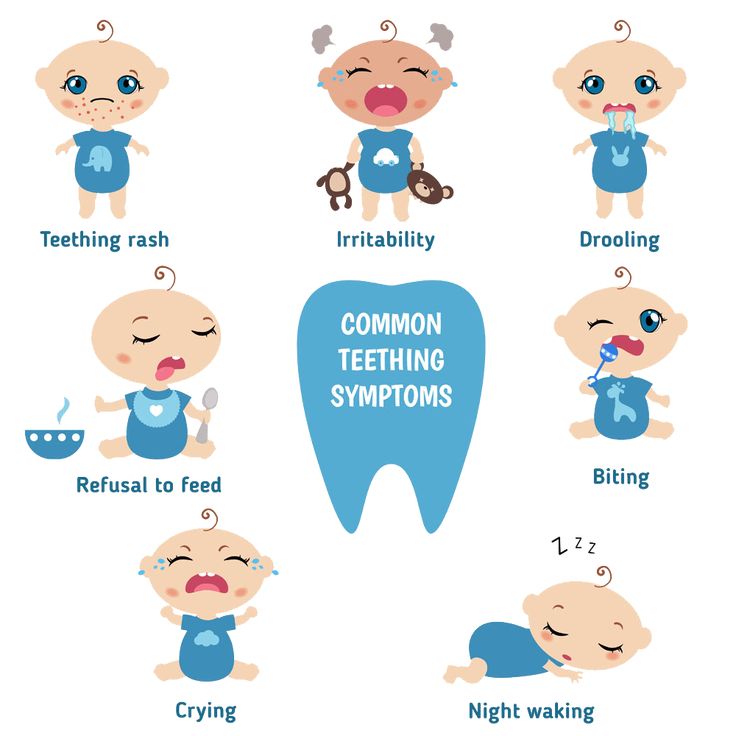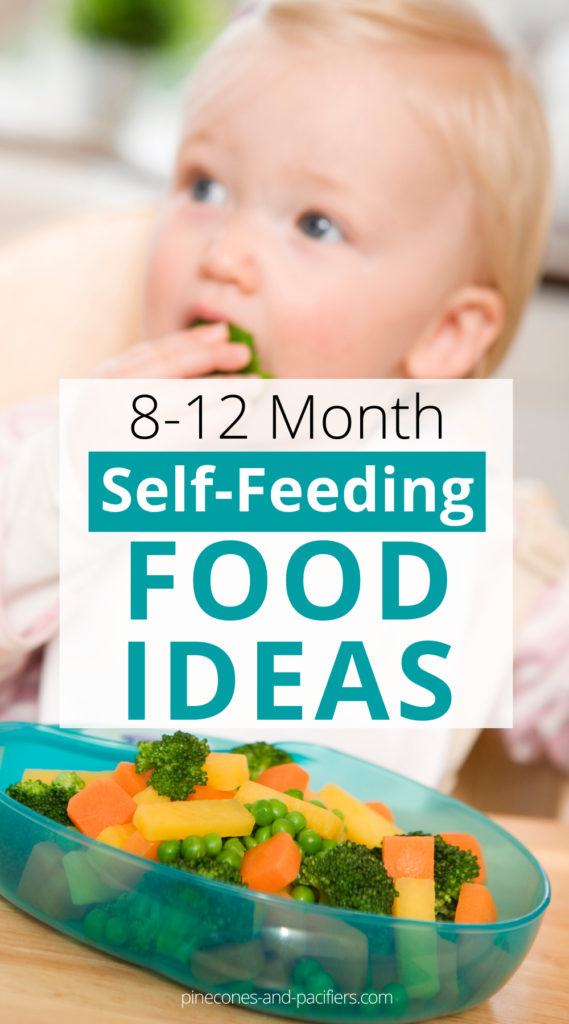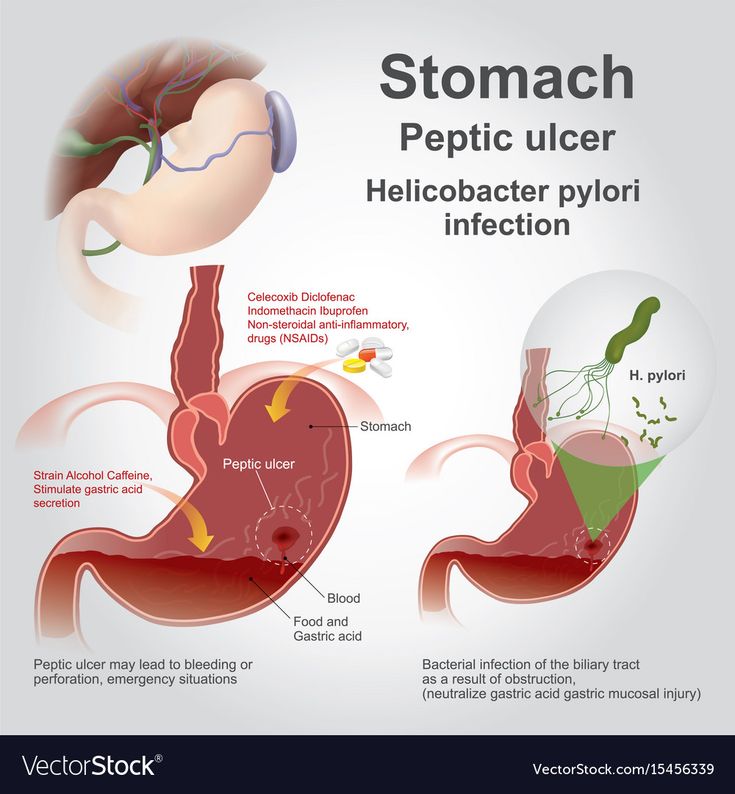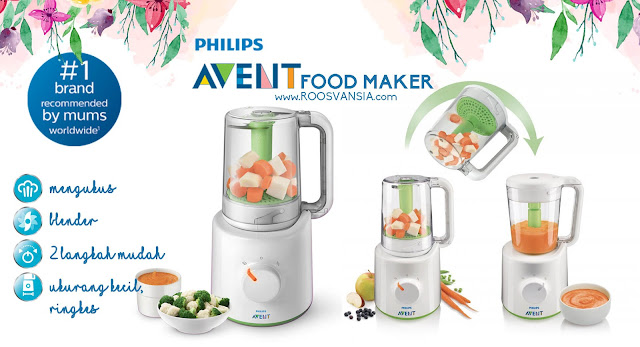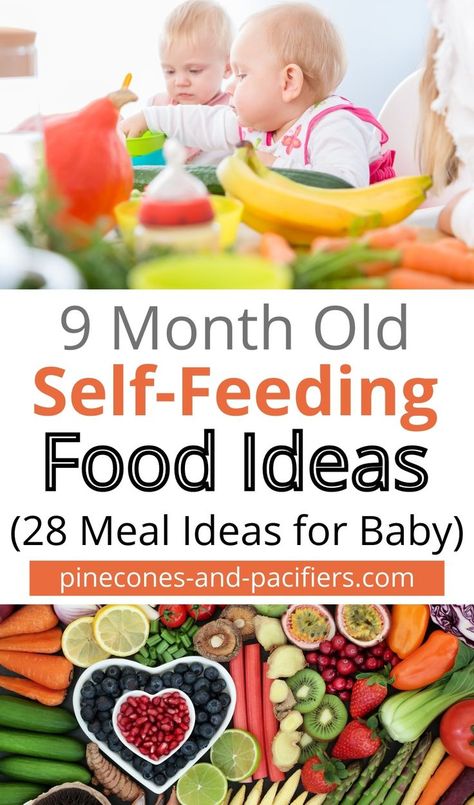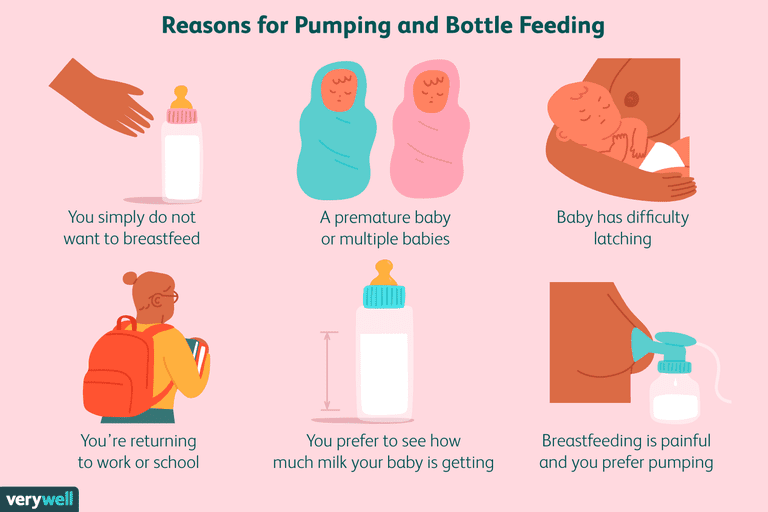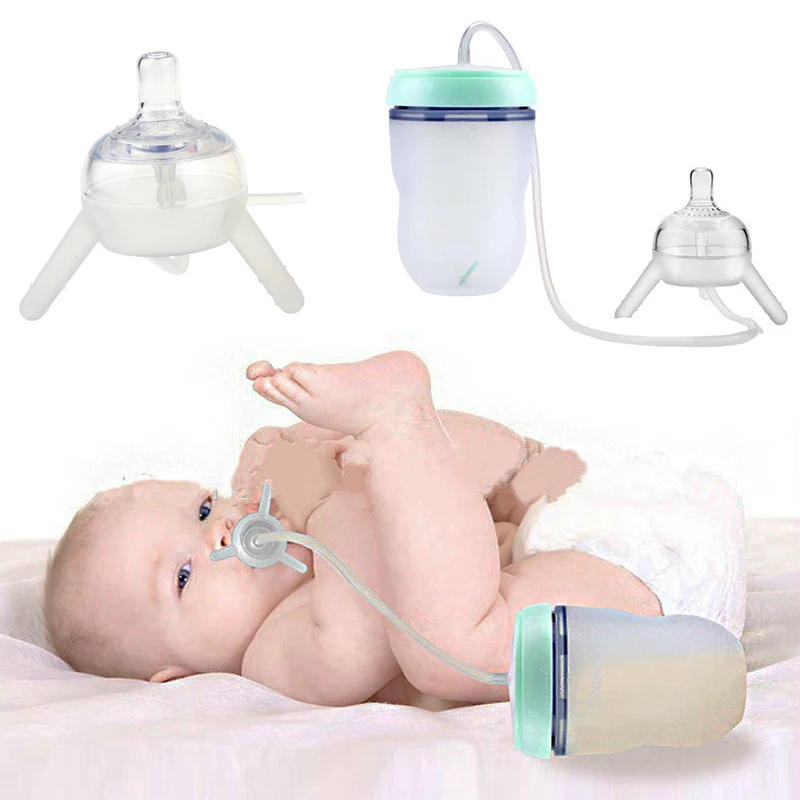What foods cause acid reflux in breastfed babies
Acid Reflux in Infants: Causes
Immature lower esophageal sphincter
The lower esophageal sphincter (LES) is a ring of muscle at the bottom of baby’s esophagus that opens to allow food into the stomach and closes to keep it there.
This muscle may not be fully matured in your baby, especially if they’re premature. When the LES opens, the contents of the stomach can flow back into the esophagus, causing baby to spit up or vomit. As you can imagine, it can cause discomfort.
This is very common and does not usually cause other symptoms. However, constant regurgitation from acid reflux can sometimes cause damage to the esophageal lining. This is much less common.
If spitting up is accompanied by other symptoms, it may then be called gastroesophageal reflux disease, or GERD.
Short or narrow esophagus
Refluxed stomach contents have a shorter distance to travel if the esophagus is shorter than normal. And if the esophagus is narrower than normal, the lining might more easily become irritated.
Diet
Changing the foods baby eats may help reduce the chances of acid reflux. And if you breastfeed, making changes to your diet might help your baby.
Some studies have shown that reducing intake of milk and eggs may help, though more research is needed to determine how much this affects the condition.
Certain foods may be causing acid reflux, depending on your infant’s age. For example, citrus fruits and tomato products increase acid production in the stomach.
Foods like chocolate, peppermint, and high fat foods can keep the LES open longer, causing the contents of the stomach to reflux.
Gastroparesis (delayed emptying of the stomach)
Gastroparesis is a disorder that causes the stomach to take longer to empty.
The stomach normally contracts to move food down into the small intestine for digestion. However, stomach muscles don’t work properly if there is damage to the vagus nerve because this nerve controls the movement of food from the stomach through the digestive tract.
In gastroparesis, the stomach contents remain in the stomach longer than they’re supposed to, encouraging reflux. It’s rare in healthy infants.
Hiatal hernia
A hiatal hernia is a condition in which part of the stomach sticks through an opening in the diaphragm. A small hiatal hernia doesn’t cause problems, but a larger one can cause acid reflux and heartburn.
Hiatal hernias are very common, especially in people over the age of 50, but they are rare in infants. However, the causes are unknown.
A hiatal hernia in children is usually congenital (present at birth) and may cause gastric acid to reflux from the stomach into the esophagus.
Position while feeding
Positioning — especially during and after feeding — is a frequently overlooked cause of acid reflux in infants.
A horizontal position makes it easier for the stomach contents to reflux into the esophagus. Simply keeping baby in an upright position while you’re feeding them and for 20 to 30 minutes afterward may reduce acid reflux.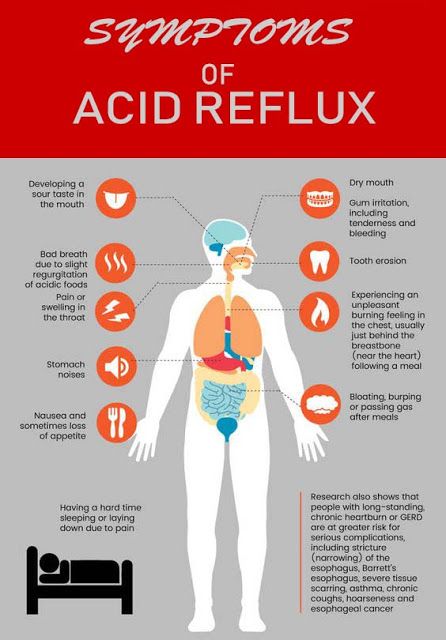
Sleep positioners and wedges, however, are not recommended while feeding or sleeping. These padded risers are intended to keep your baby’s head and body in one position, but are not recommended by the Food and Drug Administration due to the risk of sudden infant death syndrome (SIDS)
Angle of His
The angle at which the base of the esophagus joins the stomach is known as the “angle of His.” Differences in this angle may contribute to acid reflux.
This angle most likely affects the ability of the LES to keep the contents of the stomach from refluxing. If the angle is too sharp or too steep, it may make it difficult to keep the stomach contents down.
Overfeeding
Feeding your little one too much at once can cause acid reflux. Feeding your infant too frequently can also cause acid reflux. It’s more common for bottle-fed babies to overfeed than breastfed infants.
An oversupply of food can put too much pressure on the LES, which will cause your infant to spit up.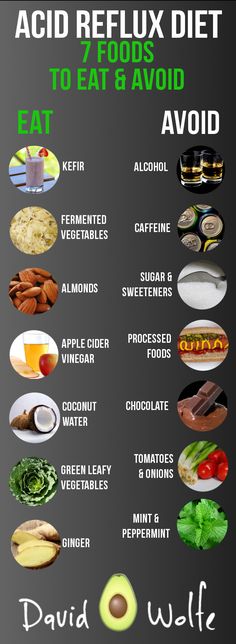 That unnecessary pressure is taken off the LES and reflux decreases when you feed baby less food more often.
That unnecessary pressure is taken off the LES and reflux decreases when you feed baby less food more often.
However, if your baby spits up often, but is otherwise happy and growing well, you may not need to change your feeding routine at all. Talk with your doctor if you have concerns that you are overfeeding your baby.
Your infant will usually grow out of acid reflux. However, call your child’s doctor immediately if you notice that your child:
- isn’t gaining weight
- has feeding difficulties
- is projectile vomiting
- has blood in their stool
- has pain signs such as arching of the back
- has unusual irritability
- has trouble sleeping
While it isn’t easy to determine the exact cause of acid reflux in infants, lifestyle and diet changes may help eliminate some of the factors.
If the acid reflux doesn’t go away with these changes and your baby has other symptoms, a doctor may want to perform tests to rule out a gastrointestinal disorder or other problems with the esophagus.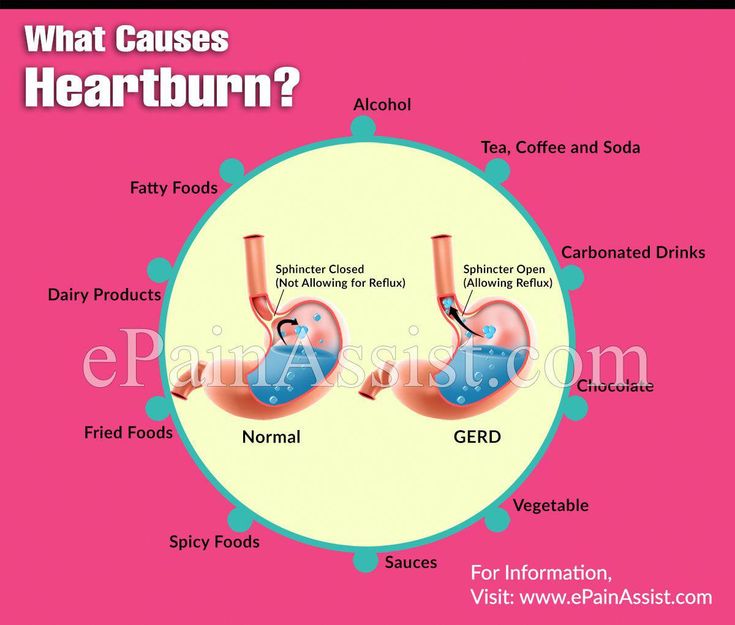
What Foods to Avoid When Breastfeeding Baby with Reflux
Sharing is caring!
- Share
Is your breastfed baby suffering from acid reflux? It can be so stressful to see your baby go through this, even though it is a common problem with newborns. If your baby is having acid reflux, there are lots of things you can do to improve their condition such as changing feeding position, burping after feeding and being aware of food to avoid when breastfeeding.
Acid reflux usually happens when the acid in the stomach moves back into the esophagus or the food pipe, resulting in the irritation of the lining of the food pipe and heartburn. But many new moms do not realize that if you are nursing it can also be a problem for your baby. The good thing is it is not as dangerous as it sounds.
If your baby has reflux after nursing, you may need to consider eliminating the food or drink that you consumed within a few hours or so before nursing.
Keeping a food journal of everything you eat and drink with the date and time you consumed it can be very helpful for pin pointing the foods that may be triggering your newborn’s reflux.
Remember what you eat or drink, will affect your baby. So, a well-balanced breastfeeding diet is important for your health as well as your baby’s health.
In most cases, there is no need to medicate your baby for reflux. Diet changes will provide great results for your baby and you. After all, it is very disturbing to see your baby in distress. By removing acid foods, foods that trigger reflux, and overeating you will see the desired results quickly.
Make sure to pin this post for later!
{Disclosure: This post contains affiliate or referral links. Read more about that here.}
List of Foods to Eliminate to help control your baby’s reflux
There are some foods that commonly can cause acid reflux for breastfed babies.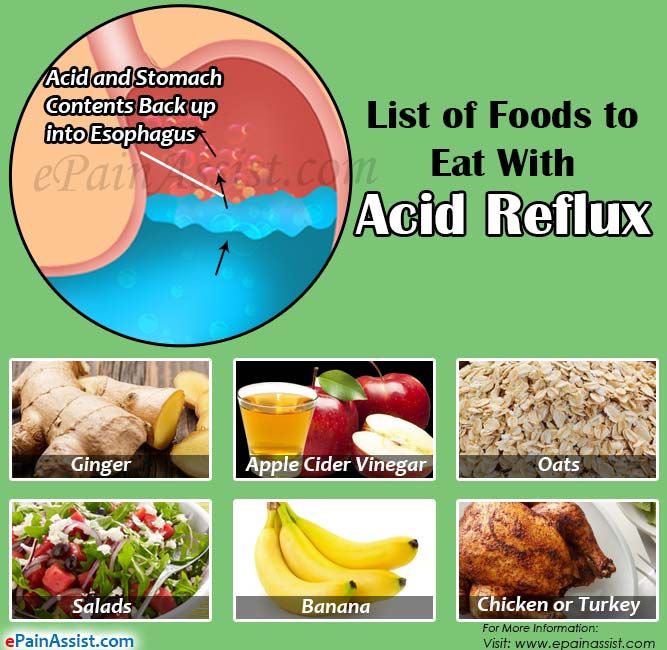 It can be hard to “give up” some of these foods so it’s important to focus on what you can eat while breastfeeding, just as much as the foods to avoid.
It can be hard to “give up” some of these foods so it’s important to focus on what you can eat while breastfeeding, just as much as the foods to avoid.
While many of these foods are good for you normally, while breastfeeding it can be helpful to eliminate these foods to aid in relieving your baby’s acid reflux.
The advice included in this article is meant for informational purposes only. Please consult your care provider before making any decisions regarding your pregnancy.
Tomatoes
Tomatoes contain citric acid, malic acid and trace amounts of oxalic acid. People who have acid reflux triggered by these acids may well have acid reflux from eating tomatoes, their by-products, such as pizza or ketchup, or drinking tomato juice. That’s a lot of acid!
Tomatoes may not cause you to have reflux, but it may be the culprit that is causing your baby to spit up after nursing.
Coffee, Tea, and Carbonated Beverages
These drinks are all caffeinated and should be avoided while nursing a baby that has reflux.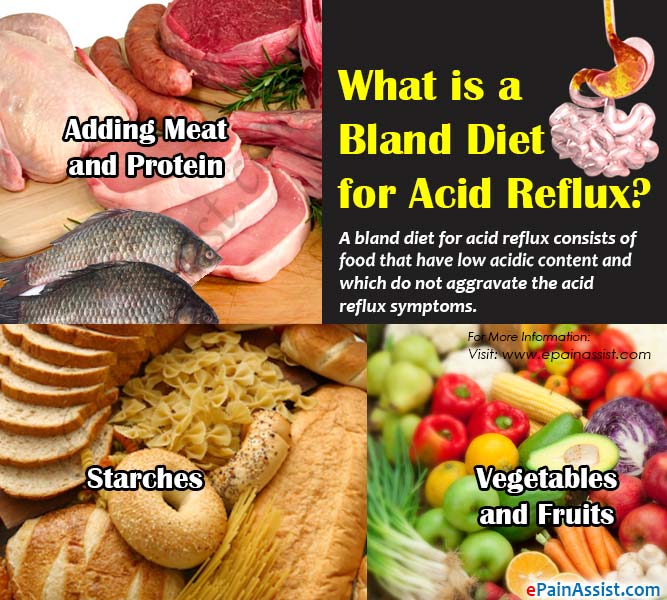 They also contain different amounts of acid which may cause you distress to your baby’s tummy. They may be high in sugar as well.
They also contain different amounts of acid which may cause you distress to your baby’s tummy. They may be high in sugar as well.
Alcohol
Beer, wine, and liquor can relax the lower esophageal sphincter. Alcohol also stimulates the production of stomach acid. Many alcoholic beverages can be high in sugar as well. It’s best to avoid alcohol while nursing if you baby has acid reflux.
Citrus Fruits
Citrus fruits such as oranges, lemons, limes, and grapefruits contain more acid than other fruits that may lead to reflux. They also relax the lower esophageal sphincter. Enjoy other fruits while nursing.
High Fat Dairy
Try to substitute high fat milk, cheese, yogurt, and other dairy products for low fat options. Try coconut, oat, cashew or almond milk if cow milk is not tolerable for your nursing baby.
Read What to Eat While Breastfeeding for ideas of what to eat instead of dairy.
Mint
There is a big debate about mints such as peppermint and spearmint products. In some people it seems to cause heartburn and acid reflux. So, to be on the safe side, do not chew mint gum or eat mint foods while nursing.
In some people it seems to cause heartburn and acid reflux. So, to be on the safe side, do not chew mint gum or eat mint foods while nursing.
Peppermint is known to be among the herbs that decreases milk supply also.
Spicy Foods
Spicy foods are a part of everyday life for most people. But eating spicy foods such as chili and peppers may cause reflux for your nursing baby.
Consider eliminating spicy foods while nursing and see if it helps your baby’s reflux.
High Fat Foods and Fried Foods
Foods high in fat such as fried chicken, milkshakes, sauces, cakes, and other rich foods should be avoided when nursing. These foods worsen acid reflux and can cause weight gain because of high in calories.
Check out 5 ways to lose the postpartum belly here.
Red Meat
Red meat is high in acid and fat content that can cause reflux. Do you need to totally avoid red meat? No! Just consider substituting fatty cuts for leaner cuts of meat while you are breastfeeding your baby with reflux.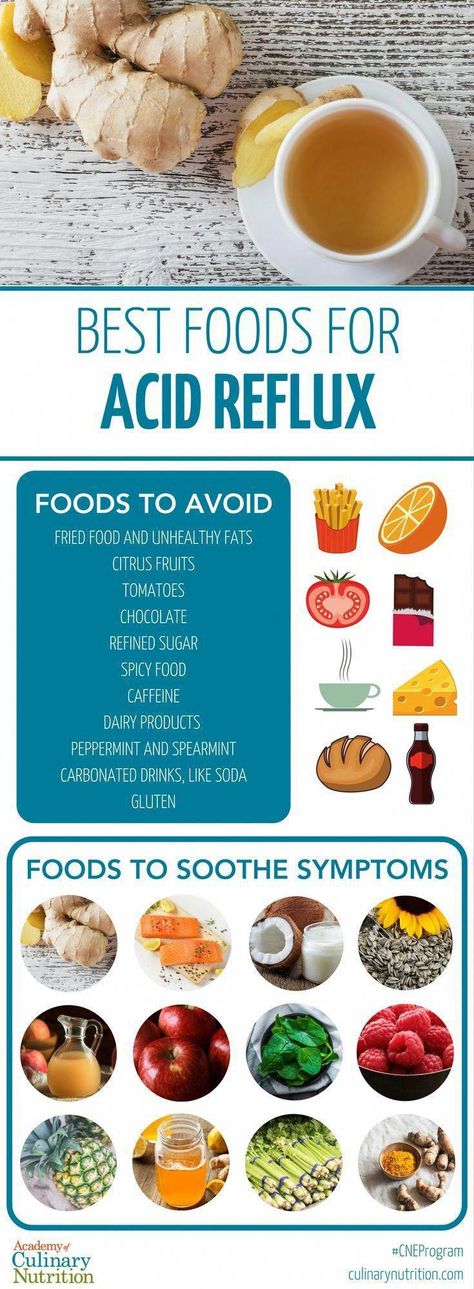
Processed Grain and Flour
Most of these foods are classified “junk food”. Some included are breads, hamburgers, cakes, cookies, and there are many more. Avoid these foods, they may cause reflux or gas for your nursing baby.
Look into making your own healthy breastfeeding snacks like these.
Garlic and Onions
Garlic and onions are known to cause heartburn or acid reflux in some people. Your baby may be one those people. So be careful consuming these when you are breastfeeding and test out eliminating this food if your newborn’s acid reflux persists.
Cruciferous Vegetable
Vegetables like broccoli, cauliflower and cabbage may cause gas in many breastfed babies which can lead to reflux for your baby. You may want to eliminate these as well if they effect your nursing baby.
Chocolate
Chocolates contain cocoa and theobromine, which are known to increase the acidity in the stomach. This is a hard one to give up, but you may have to forgo chocolate bars, hot chocolate, chocolate milk, and other chocolate products until after nursing if your baby is suffering from reflux.
Don’t worry, this time of having to watch what you eat does not last long. Generally by 6 months most babies out grow their digestive sensitivities to food you eat while breastfeeding and you can go back to a normal diet.
It is always best to consult your baby’s pediatrician if reflex continues. But changing your diet, controlling your weight, avoiding irritating foods, and generally taking care of yourself will in turn, keep your breastfeed baby healthy too.
More Breastfeeding Resources
Here at Birth Eat Love our goal is to make healthy eating easier for busy Moms during postpartum and breastfeeding.
Homemade breastfeeding snack recipes – this ebook has some great recipes that are low in sugar and dairy free for boosting milk supply.
Wondering what foods you can eat that will help increase your milk supply? This post has 11 real foods that you can eat today to make more milk and includes recipes, supplements and product suggestions.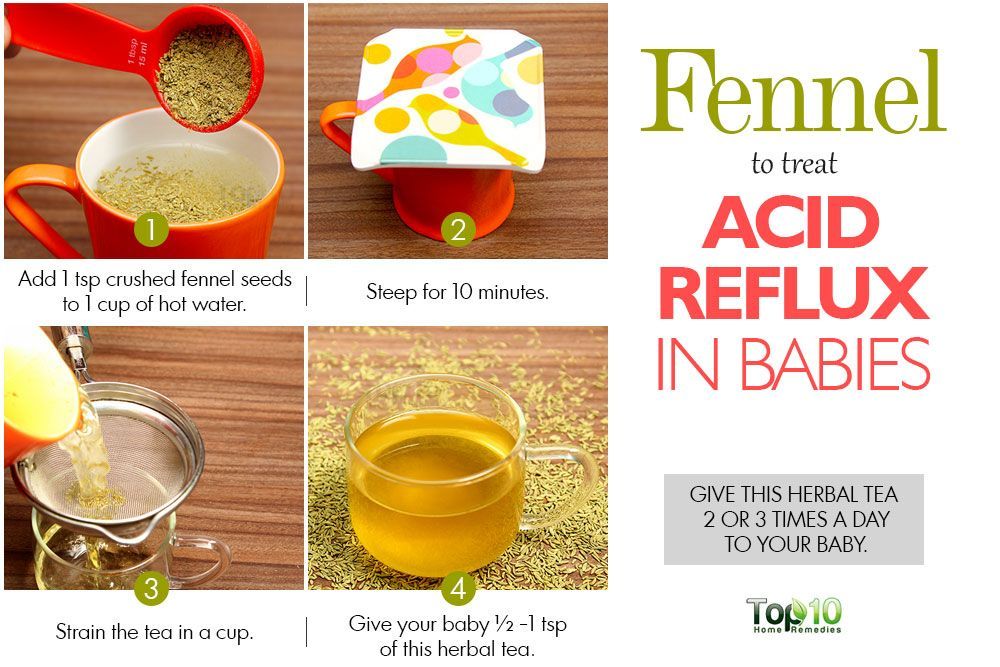
Do you have a colicky or super fussy breastfed baby? There are some foods you may be eating that could be making your baby uncomfortable. Read about a few foods to avoid while breastfeeding here.
Looking for breastfeeding recipes that can help support your milk production? Here are 9 breastfeeding soups that you can make in the slow cooker or instant pot.
Interested in making freezer meals so you can have easy dinners? Check out this freezer meal ebook that has 12 recipes specifically designed to support breastfeeding and postpartum recovery.
Tired of trying to decide what to eat while breastfeeding? Reduce the thinking and stressing about meal time with this simple breastfeeding meal plan.
Trying to find a way to cope with the summer heat? Look no further with These refreshing iced teas
Sharing is caring!
- Share
Infant Reflux: Symptoms and Treatment
Search Support IconSearch Keywords
Home ›› What is Reflux in Infants?
Home ›› What is reflux in babies?
↑ Top
Signs and what to do
Post-feed regurgitation is a common occurrence in the first few months of life.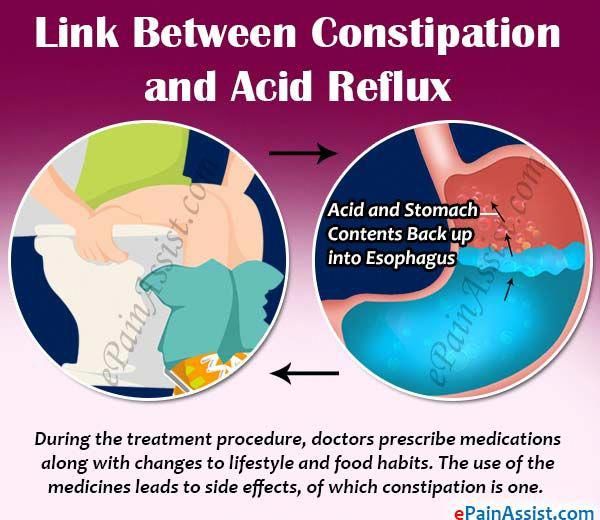 This is usually harmless and completely normal, but parents should read about gastroesophageal reflux (GER) and laryngopharyngeal reflux (LPR) in infants and how long it lasts to give them peace of mind. nine0019
This is usually harmless and completely normal, but parents should read about gastroesophageal reflux (GER) and laryngopharyngeal reflux (LPR) in infants and how long it lasts to give them peace of mind. nine0019
We look at signs of reflux in babies, symptoms of different types of reflux, and how to help a child with signs of reflux. If you require further information, always contact your healthcare provider.
What is reflux in babies?
So we know reflux is common, but what causes reflux in babies? Because young children have not yet fully developed the lower esophageal sphincter (LES), that is, the muscle at the bottom of the esophagus that opens and closes to let food into the stomach and keep it there, food can easily pass back up the esophagus. nine0003
Acid reflux, also known as gastroesophageal reflux (GER), is a normal reflux that occurs in babies. This type of reflux is considered normal and occurs in 40-65% of babies.
How do I know if my child has acid (gastroesophageal) reflux?
If a baby is spitting up milk after a feed, it is most likely acid reflux. As babies get older, GER usually goes away on its own without any intervention. If a baby has complications beyond just spitting up a small amount of milk (such as feeding difficulties and discomfort), they may have gastroesophageal reflux disease (GERD). nine0019
Symptoms of GERD include:
- baby arching during or after feeding;
- crying more than three hours a day for no apparent reason;
- cough;
- gag reflex or difficulty swallowing;
- irritability, restlessness after eating;
- eating little or not eating;
- poor weight gain or loss;
- difficult breathing;
- severe or frequent vomiting. nine0019
GERD usually occurs when LES muscles are not toned in time, causing stomach contents to back up into the esophagus.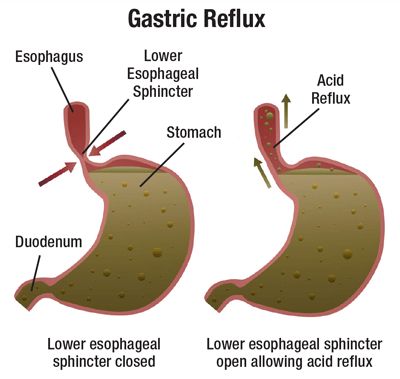
How do I know if my child has Laryngopharyngeal Reflux?
Another type of reflux, laryngopharyngeal reflux (LPR), also called silent reflux, is when the contents of the baby's stomach leak back into the larynx, the back of the nasopharynx. This type of reflux does not always cause external symptoms, which is why it is called "silent". Babies can have GERD and silent reflux at the same time, but their symptoms are somewhat different. nine0019
The following are some of the symptoms of laryngopharyngeal reflux:
- breathing problems;
- gag reflex;
- chronic cough;
- swallowing problems;
- hoarseness;
- regurgitation;
- poor weight gain or weight loss.
We have looked at the signs of reflux in infants, now we will move on to the treatment and duration of silent reflux in children, as well as the treatment of GERD. nine0003
How to deal with laryngopharyngeal reflux in babies while breastfeeding?
Breastfeeding mothers may need to review their diet if their babies show signs of reflux. The American Academy of Pediatrics (AAP) recommends breastfeeding mothers cut eggs and milk from their diet for two to four weeks to see if their baby's reflux symptoms improve or disappear. It may be worth eliminating acidic foods from your diet. nine0019
The American Academy of Pediatrics (AAP) recommends breastfeeding mothers cut eggs and milk from their diet for two to four weeks to see if their baby's reflux symptoms improve or disappear. It may be worth eliminating acidic foods from your diet. nine0019
In most cases, GER and laryngopharyngeal reflux go away on their own. Typically, children outgrow reflux in the first year of life. If a child has persistent symptoms of laryngopharyngeal reflux, parents should consult a doctor. If your baby has severe vomiting, blood in the stool, or any of the symptoms of GERD listed above, parents should contact their pediatrician as soon as possible.
How can I help my child with reflux or GERD? nine0008
Reflux symptoms in babies usually go away on their own, but the following tips can help relieve symptoms:
- Thicken food with rice or a special milk thickener.
- Hold the bottle at an angle that fills the nipple completely with milk to reduce the amount of air your baby swallows.
 This can help prevent colic, gas, and reflux.
This can help prevent colic, gas, and reflux. - Try the AirFree anti-colic bottle, designed to reduce air swallowing during feeding. nine0047
4. Let the baby burp during and after feeding. If the baby is bottle fed, parents can let him burp after every 30-60 ml. If the mother is breastfeeding, she may let the baby burp when changing breasts.
5. Hold baby upright after feeding. As a rule, in order for the milk to remain in the stomach, after feeding the baby, it is necessary to hold it in an upright position for 10-15 minutes. But, if the child has reflux, parents should keep him upright a little longer. nine0003
These tips may help relieve symptoms, but they do not replace a doctor's advice.
Parents should not change their infant formula formula without first talking to their healthcare provider.
Don't panic! Reflux is very common in babies during the first three months of life, and most babies outgrow it without any consequences. Although GERD is a slightly more serious condition, there are many treatments, ways to manage it, and help newborns. Feel free to contact your doctor with any questions or concerns you may have. nine0003
Although GERD is a slightly more serious condition, there are many treatments, ways to manage it, and help newborns. Feel free to contact your doctor with any questions or concerns you may have. nine0003
4 Seattle Children’s Hospital
5 The National Institute of Diabetes and Digestive and Kidney Diseases - Treatment for GER & GERD in Infants
Any links to third party websites that may be included on this site are provided solely as a convenience to you. Philips makes no warranties regarding any third party websites or the information they contain. nine0003
I understand
You are about to visit a Philips global content page
Continue
You are about to visit the Philips USA website.
I understand
9 foods that cause gastroesophageal reflux in children!
From birth to one year0
What to do when the baby "burps"!
What is the phenomenon of gastroesophageal reflux in a newborn?
The process of digestion begins when food moves from the mouth down the esophagus to the stomach.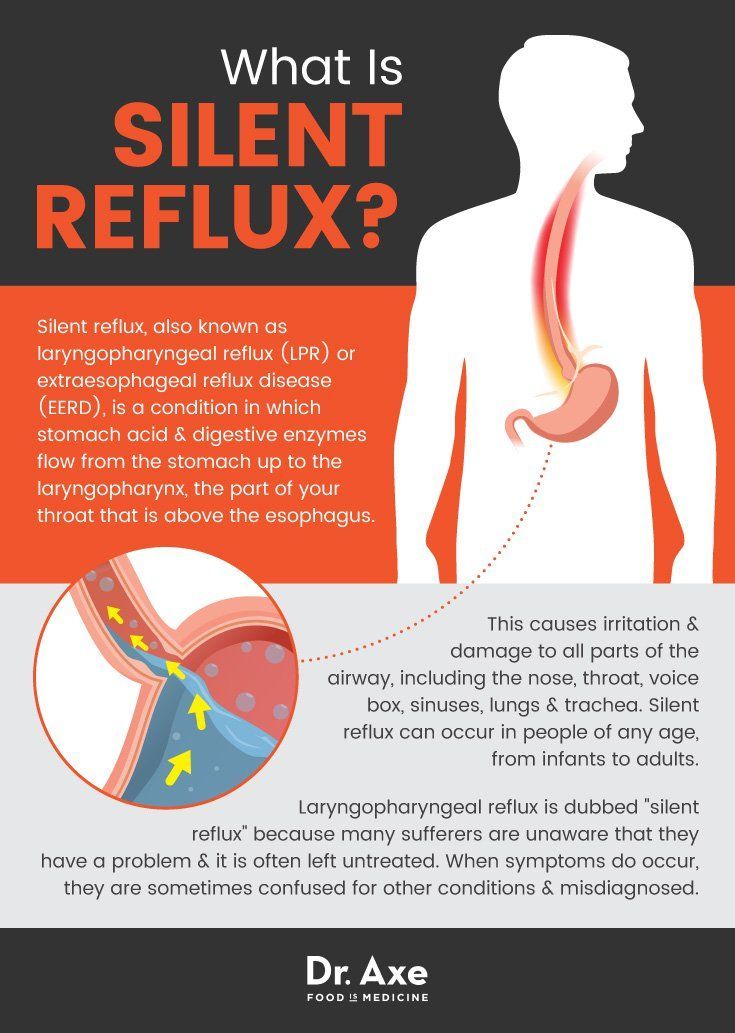 Here the stomach digests food and it moves to the intestines for further assimilation. Reflux occurs when food moves against the above path. If a child has reflux from the stomach into the esophagus, it is called acid reflux, and from the intestines to the stomach is called base reflux. nine0003
Here the stomach digests food and it moves to the intestines for further assimilation. Reflux occurs when food moves against the above path. If a child has reflux from the stomach into the esophagus, it is called acid reflux, and from the intestines to the stomach is called base reflux. nine0003
In infants, gastroesophageal reflux during breastfeeding is caused by three factors:
An open esophageal sphincter causes gastroesophageal reflux.
The stomach is not ready for normal functioning. The gastric region is the junction of the esophagus, the stomach has a special strip of smooth muscle that creates a collapsing pressure that prevents food from refluxing into the esophagus. However, this part of the infant's digestive tract is still underdeveloped, so milk and stomach acid can be refluxed. In addition, the digestive system of a child at an early age is sensitive to the limited absorption of lactase, enterokinase and pepsin in breast milk.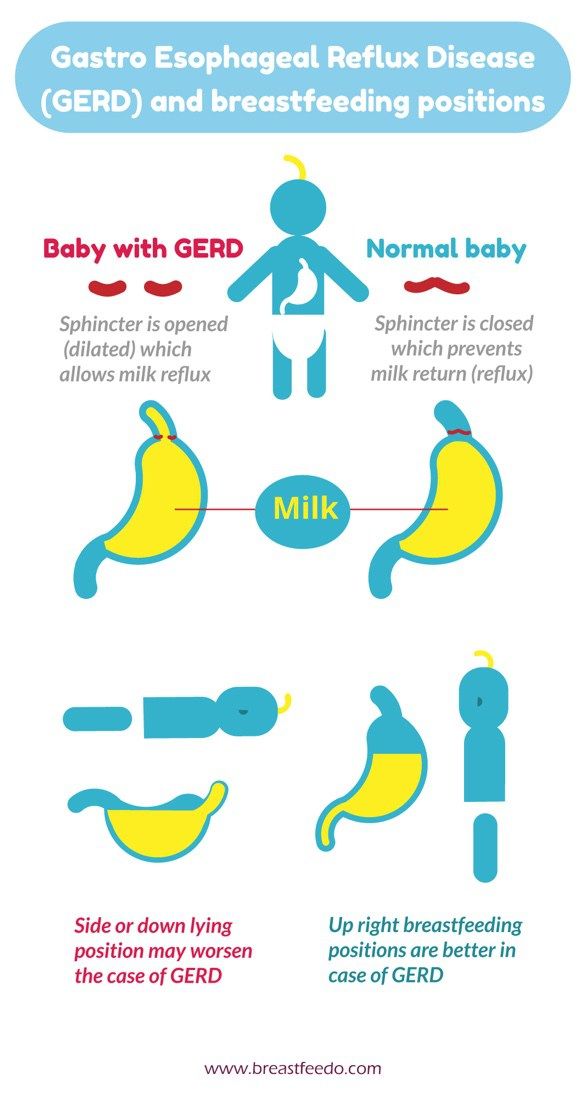 nine0003
nine0003
The stomach in children is horizontal, higher than in adults. Gradually, the stomach will change its position to a vertical position, which will prevent reflux. In infancy, the angle between the esophagus and the thick process is an obtuse angle, so when overfeeding, twisting, the flow of milk counteracts the muscle that has not yet developed, and the child "burps".
Mother's eating habits. In the first 6 months, newborns do not need additional nutrition, because breast milk contains enough essential nutrients such as vitamins, lipids, glucides, protide, proteins and trace elements. The quality of breast milk depends on the daily food source, which means that the baby will absorb these substances indirectly, which can lead to food reactions and gastroesophageal reflux in newborns. nine0003
Foods that cause gastroesophageal reflux when babies are breastfed
- Citrus fruits, which are high in vitamin C, can irritate a baby's digestive system, resulting in acid overflow during lactation.
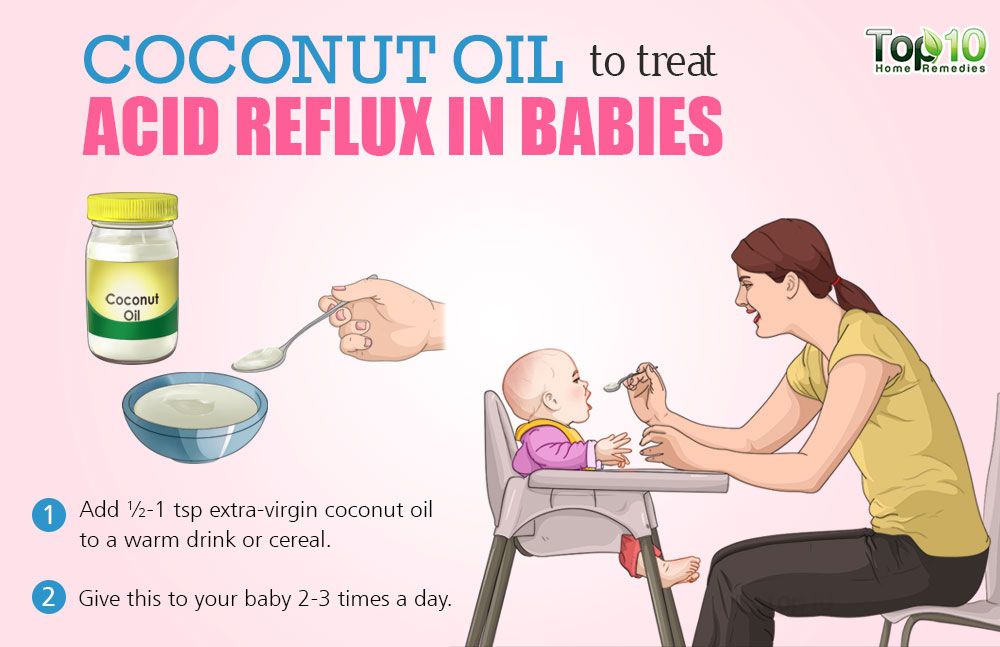 Mother can replace them with papaya, mango.
Mother can replace them with papaya, mango. - Alcohol and tobacco irritate the digestive system, causing an acid reflex during breastfeeding.
- Broccoli, cabbage contain sulfur compounds that create gases. nine0047
- Carbonated drinks contain 30-56 mg of caffeine per 330 ml. In addition, these drinks are often cold, which can reduce milk production and cause eating disorders in children.
- Coffee. Most nutritionists recommend that women who are breastfeeding consume less than 200 mg of instant coffee per day (a small cup of 20 mg of caffeine). Because part of the caffeine in coffee will mix with the blood and enter the mammary gland if the mother drinks a lot of coffee and constantly. You can replace coffee with juice, fresh milk, mineral water, herbal tea (except green tea). nine0047
- Pepper, chili pepper, spicy spices are common causes of gastroesophageal reflux in newborns. This type of food causes breast milk to become hot and foul-smelling, which causes constipation, irritability, and indigestion in babies.
